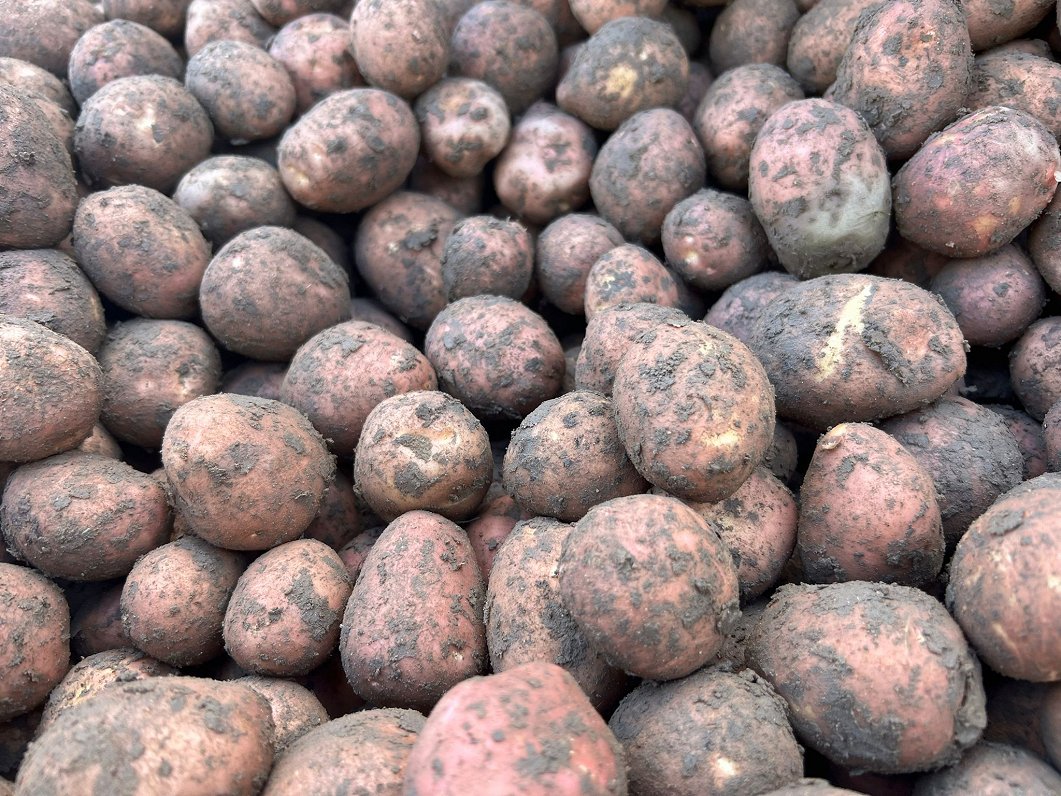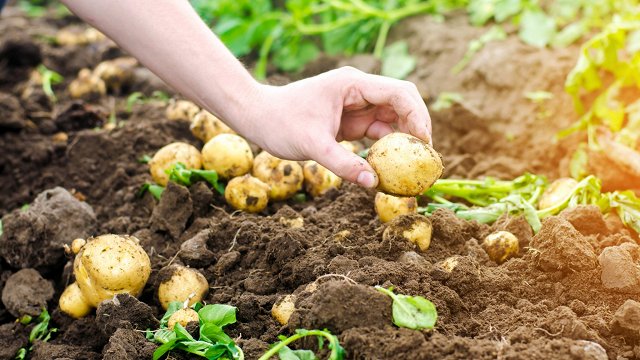Guntis Silenieks, owner of Gudriķi farm in Otaņķi parish, Nīca municipality, Southern Courland, planted some of the seed potatoes he grew on over ten hectares on sandier land this spring. The early varieties have already flowered, while the later ones are just at flowering time. Guntis Silenieks says that the situation in the potato fields looks very promising.
"To be honest, in the spring I regretted planting in the sand, but for now nature is on my side! This year, nature has treated us to a bit of rainfall, the potatoes [have] almost enough [moisture], you could say, because they need it most when they are flowering. And tomorrow [Wednesday] promises more rain, so everything should be fine," he says.
The fields of "Gudriķi" are cultivated with ten varieties of potatoes, some of which are elite seed imported from abroad, while the rest of the fields are cultivated with A-class potatoes. So - the best seed material. However, even this is not immune to pests and diseases, which, with warm and wet weather, are at their most intense.
The Colorado beetle has been known to Latvian growers for more than 60 years, and this summer is no exception, according to Māra Bērziņa, an inspector at the State Plant Protection Service. The beetles have been voraciously attacking potato fields after a successful overwinter.
"The caterpillars will feed actively until they have reached their fourth stage. If the host is so kind to them that the fourth stage is reached, there will also be crop losses. What to do with it? Clearly, this pest must be contained. In small gardens, the only way out is to collect the larvae. It would be a good idea to collect the beetles in spring when they are emerging from the ground and waiting for the first potato to come out," explains Māra Bērziņa.
The expert recommends that gardeners collect the pest eggs and the beetles themselves by simply picking them mechanically. Farmers, on the other hand, should use insecticides.
"There's nothing left to treat it with, either, because everything that was good is banned! The possibilities to protect potatoes are becoming fewer and fewer.
"The same is true for diseases - there was a good remedy, but it was banned. The quality of the harvest is starting to deteriorate. It is difficult to maintain quality if there are no fungicides and insecticides to fight. The buyer, however, is quite choosy. They say you are poisoning and chemicising, but in a supermarket, where on one shelf there are wormy and scabby potatoes and on the next shelf there are beautiful, flat and smooth potatoes, unfortunately, nobody buys the wormy ones," says Guntis Silenieks.
Although the sultry weather will favor the spread of pests and disease, plant protection experts assess that the situation this year is no different from other years.
Farmers are happy that energy prices have stabilized, but are reluctant to make any predictions about autumn prices. For example, the most expensive new potatoes on the Liepāja market can be bought for one euro per kilo, but with the new harvest, prices are falling. However, with better harvests already in place in importing countries and here, and expected in the autumn, potato prices are expected to fall below last year's prices.




























